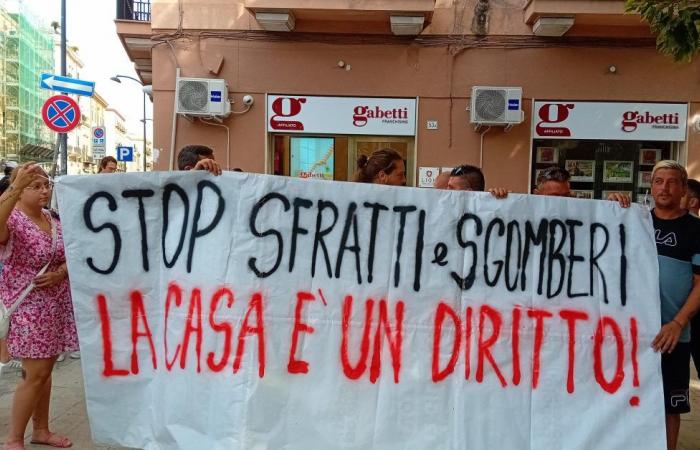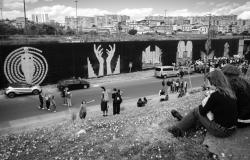
In a context of growing poverty, precarious and low-income work, equally low pensions and high rents, the housing problem is becoming increasingly serious for many Sicilian families.
In 2022 there were 10,733 evictions – between those issued, those executed and requests for execution – while the applications pending for the assignment of public housing are 23,938. Rents also rise: 8.2 percent of people, against the national figure of 6.6%, live in families that spend more than 40% of their net income on housing and 5.5% live in a of overcrowding, in dilapidated environments, where health services are also lacking (Istat data 2022).
These are some of the data on housing hardship in Sicily, contained in a dossier presented today by a group of organizations and trade unions in Sicily – CGIL, Sunia, Federcomsumatori, Arci, Legambiente, Comunità di Sant’Egidio, Auser and Udu – who have decided to give life to the “Living Forum”, to build critical mass and obtain responses from the institutions. The latter are missing, according to the acronyms of the Forum, with a Region, says the “Manifesto” of the Forum, which “does not budget for adequate sums to mitigate housing hardship, nor to redevelop the housing stock of public residential buildings. Which has never regulated the complex matter of ERP”.
While the per capita expenditure of the Municipalities in support of the right to live is negligible, especially when compared to that of other Italian cities (Openpolis on municipal budgets 2021): in Ragusa 0.01 euros per inhabitant is spent, in Genoa instead 58 .26 euros (the two extremes of the scale); in Catania 0.84 euros, in Bologna 33.31 euros.
The Forum calls for a regional framework law on housing
The Forum calls for a regional framework law on housing, which addresses the complex matter. And which first of all includes an Observatory, capable of monitoring the sector, in all its many aspects. “It is necessary to implement effective strategies to defeat the wall of indifference that obscures the problems,” says the manifesto.
Proposal also looks at energy transition
The Forum’s proposal – which also looks at the energy transition and falls within the “zero land consumption” line – provides governance tools such as a regional housing department, but also, at the local level, real social housing agencies own control rooms and coordination between public bodies, trade unions and third sector organisations.
Financial instruments for economic support requested
Financial instruments for economic support are requested for those evicted on medium-low incomes. But also urban redevelopment programs and public residential buildings with a social objective aimed at guaranteeing the right to live and the quality of living. For the Forum, we must also go towards the reuse of the huge abandoned public assets for housing purposes with the creation of a specific database and provide for the destination of the assets confiscated from the mafia for housing purposes. Of the latter, almost 3 thousand are already available to Sicilian local authorities.
The Forum also calls for the expansion of beds and accommodation for students (today the availability for non-residents covers just over 5%) and the guarantee of the right to housing for all those at risk of social exclusion. In short, there is a need for investments at all levels and “for urban planning – says Manifesto – which does not respond to private speculative interests but which, at the service of the community, can guarantee the city and the territories the opportunity to combine needs of social, environmental and economic development and sustainability”. The need to support regional policies with national policies was also highlighted, for example by refinancing the rental support fund and passing a national law for an extraordinary housing plan with the recovery of abandoned public property and public housing at its centre. Initiatives for which “adequate investments” are needed.





